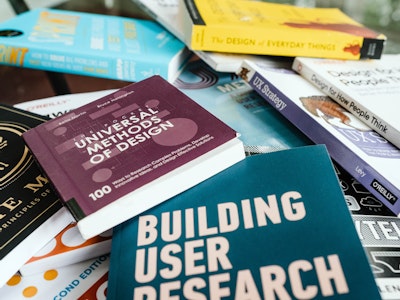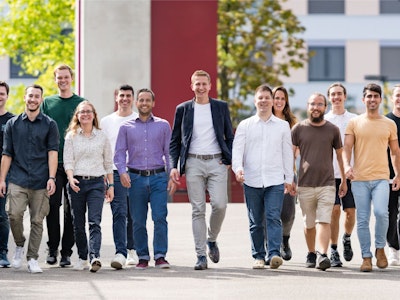Internships have a bad reputation in certain sectors. Pay and status are low. It's being attributed to menial work. In IT, it is not always like this. Yes, there are situations where interns mainly make coffee or manually copy Excel spreadsheets, but more and more employers understand that clever young people can make a real difference in a company, especially in the long run.
Finding qualified people is difficult, especially in tech. The market cannot play because good people already have a job. And often there isn't a clear educational path available which would bring the right qualifications to todays very specialised tables. So we, the rather young IT industry, need to bring forward young and interested people by ourselves.
A properly structured internship is a low-risk investment with a lot of potential. Properly structured means that there are checks and balances in place to hedge for mistakes. A potent brain worker blends in well and fills the gaps in a company, directing a new vibe from the outside to the inside. They may come from a university still with their idealistic views about software, processes and the world. It's the opposite of experience, or what we call "déformation professionnelle". In need of orientation, they will provoke questions: how fast can they be onboarded? What questions do they ask? Whom do they make angry? Is it easy to make mistakes? They are a mirror for the company. Regular fluctuation is helpful in that regard, even though hindering in others.
Interns usually fall into two groups: those who are tired of school and want to work, often staying longer with the company. The others treat the internship as a career springboard, learning quickly before moving on to further studies or higher-paying jobs.
Internship contracts are low risk, high gain for employee and employer if a lot can be learned on both sides. It's not fair if there's no prospect of advancement. So use the opportunity to give them shaping tasks. Shaping themselves and the company.
And if it didn't work out, then at least both expanded their social network and will hopefully meet again in good spirits at the alumni event.
The Renuo legacy
Hiring interns has a tradition at Renuo. Our two founders, Diego and Lukas, both graduated from IMS Hottingen in 2006. This means they themselves had to undergo a one year internship at a real company, outside of school. We still visit the job fair in Hottingen each year for this reason. It feels right to keep the continuous tradition alive, to present ourselves to the choosing eyes of the best educated IMS students.
We would like to uphold the tradition because it provides stability, an anchor, in this fast changing world. And we hope that the internship at Renuo also means something worth upholding to our alumni. In this spirit, we organise an alumni event for all our past employees each year. Our origins matter.
The perfect candidate
The two hiring criteria I learned from Joel Spolsky are "smart" and "getting things done". I find them to be the distilled first principle of hiring if the social fit is right. Way more productive than nuanced scales over an HR catalogue of criteria. If both criteria apply, then it's probable that even a person just starting out fresh will advance fast during the internship. So we want to test for applied intelligence (making connections and precise transfer performance) under time pressure (especially because Renuo is an agency). Both are difficult to measure. If someone didn't see it yet. And the thing about time pressure is that routine improves the situation a lot by reducing stress – they know the drill. And this is exactly right. It's not just an IQ test.
People coming from IMS (Informatikmittelschule) already have a track record of school grades and courses. So the technical expectations are obvious.
In any case, the experience is that people not having programming as a hobby don't stand a chance in assessment process or drop out after the internship. A genuine interest in building software is needed to succeed when entering the profession. If the profession is being chosen because of other opportunities (e.g. wage or parents pressure) this may work for applications at other companies, but not for Renuo. Issues will surface eventually.
Formal requirements to an application
Normally, I expect a cover letter, curriculum vitae and grades. Actually, there are no real formal requirements. If an intern personally would come by to the Renuo office to ask about the open position, I would find this cocky enough to consider a hire. But most people apply to multiple companies and therefore don't have time for very creative and specific targeting – even though it would be worth it, at least for Renuo.
Cover letter
A cover letter is just a nice opener. It shows me why someone chose exactly Renuo and not another company. I prefer short and specific ones over lengthy and formal ones. But still, it should be visible that some effort has been put into it so that the motivation behind the application becomes clear. We put significant effort into the application process, so I like to see at the first glance whether it's worth following up on a specific application. And a note on the side: orthography and syntax are really important. I am very fast in assuming general sloppiness.
Grades
The main thing we select on is school grades. So it's important to hand in all grades. Currently, the mark for really good is about 5.3. If the grades' average is below 5.3 (Swiss grading scheme) you need to explicitly shine somehow. Attach code of a free time software project you did alone. Make sure I can see that plenty of hours went into it. This is a tradeoff: the lower your grades, the more explaining you need for them. And the explaining better be something like: I make my own fonts in my spare time, and that's why I didn't like attending some boring school course.
Interesting references
GitHub is a track record of the code someone wrote in public. This is especially useful for candidates who did not yet need to hide their work under the shroud of competition because they were not employed yet. And for the ones who already worked, it tells even more that they care about sharing. The more they share, the more their coworkers can learn from them.
Stackoverflow is a nice reference. Asking good questions is difficult. They must be precise and of interest to others. This sharing spirit is important for any software developer. One needs exposure so that one can learn and at the same time school your peers. A well asked question may uncover flaws in mentorship even. This is important.
Who writes an own blog has the opportunity to self-reference. This pays interest later in life. One can look up how one thought about a matter. One can link others to an argument. Or simply record interesting findings for yourself, so that you yourself will find it when in need.
Unbiased technical assessment
The first step is always a short technical assessment, which takes place as a video call and lasts no longer than 45 minutes. During this call, the candidate presents one of their own projects, explains the underlying decisions, and may be asked to implement a small fix or improvement together with the interviewer.
Only after this technical part follows the personal interview. The order is deliberately inverted: technical abilities are assessed first, while soft skills and personal impressions are considered only afterwards. This approach ensures that the evaluation remains unbiased and focused on actual skills.
A word on the usage of AI tools: The video call is the perfect situation to separate the wheat from the chaff. You might show a code of which you've written a lot with LLM support. That's ok, if you can still have a conversation about it. A lot of applicants cannot. And that's when I don't use up the full 45 min of the call.
Biased social assessment (social fit)
If I liked the video call, you'll be invited for an interview in person and another technical assessment. This assessment will be longer and may involve other people working at Renuo.
My own criteria
The assessment at Renuo will look different depending on who does it. I can only tell you about my own criteria. People at Renuo will assess you differently.
I'm trying to test whether you're smart and get things done. So I will give you a task which is doable quickly if done badly, but will take more time if done properly. I try to uncover whether you struggle with finding the theoretical best solution without getting done anything.
The social fit is more about chemistry and interaction. I can name three aspects:
- I want to make sure that I can play out people's strengths. If I'm unable to, then I might never be able to.
- I want to be able to spark joy. This is why I use assignments, which I really like to do myself. If I cannot influence people, how will they ever learn something from me?
- If I didn't learn at least something during the assessment, then I consider it a bad one as well.
The internship concept
There would be much more to write in this article, for example how fast we onboard you or why we pay interns monthly instead of by the hour. But let's leave it at that. The only thing I want to mention still is our internship concept.
Your internship is guided by our internship concept. It's a 60 pages document planning a whole year of an IMS intern. At first, it's more fine granular. Later, the time ranges are a bit loosened up. During your internship, you'll have a Götti. This person will guide you through the year and is here if you've got non-technical requests (e.g. holidays) or if something is otherwise off. You'll be productive very soon after you started the internship. We'll take full advantage of your capabilities so that you can as well of our experienced software engineers.







